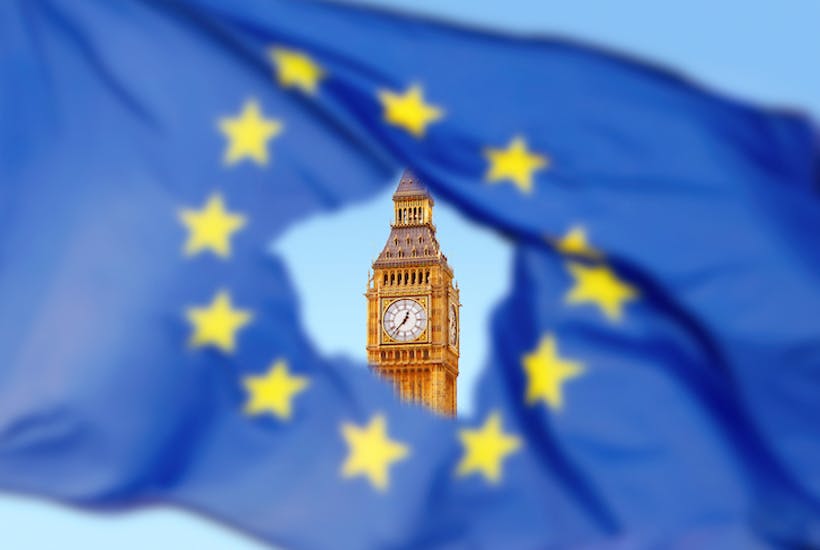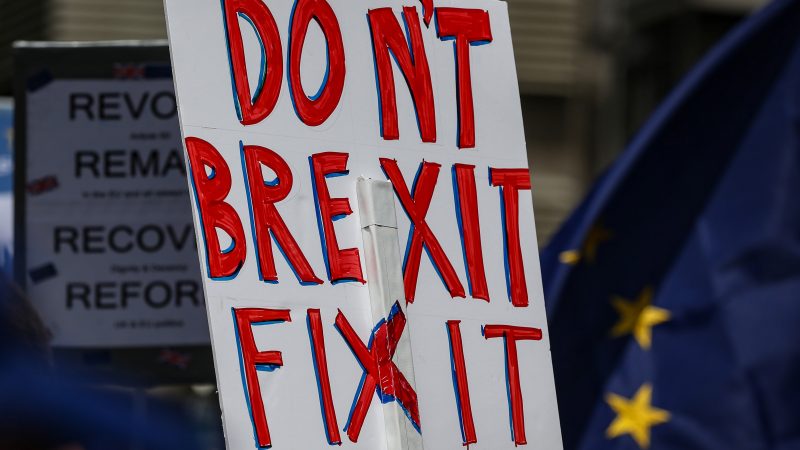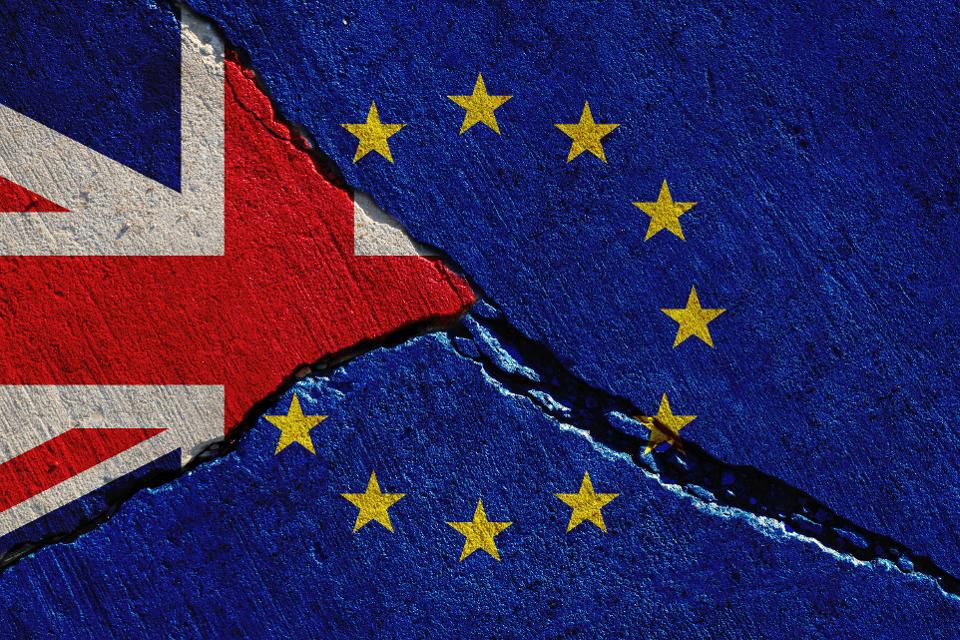Journalists like everyone else get confused by the complexity and political posturing involved in the long drawn out Brexit negotiations. So the AEJ UK section invited one of the UK’s leading authorities on EU Law to explain the consequences of the various options facing the UK government just one month before the scheduled date of Brexit. A no-deal Brexit? Another extension? A referendum? Or will the agony never end? Professor Catherine Barnard provided the best available answers.
AEJ UK member and ex-Financial Times correspondent Peter Norman summarises the views and explanations of Catherine Barnard, Cambridge University Professor of EU Law and senior fellow at The UK in a Changing Europe. She was the AEJ’s guest at a lunchtime meeting in London on September 24th 2019

– The AEJ’s meeting with Catherine Barnard took place less than two hours after the UK Supreme Court ruled unanimously that the government’s five-week prorogation (complete shut-down) of parliament From September 9th to October 14th was “unlawful and void”. So AEJ members were treated to an instant assessment by one of the UK’s leading experts on EU law of the landmark Supreme Court decision before turning to the original purpose of the meeting, with a slide presentation and analysis of the state of play on Brexit – including the pitfalls that would arise in the event of the UK leaving the EU without a deal at the end of October..
The UK Supreme Court ruling
The ruling, delivered with calm precision by the Court’s president Lady Hale, was “more radical than anyone would have expected”, Professor Barnard said. It was only the second time the court had sat as a body of 11 (the maximum number of its 12 members required to ensure no possibility of a tie). The unanimity of the ruling was legally important in that it meant there could be no question mark over the decision. It also protected the individual judges from any attempt by outsiders or critics to distinguish preferences among the Court’s members.
On substance, the Court’s decision that it does have the authority to rule on the prorogation – in other words that the case was “justiciable” – was constitutionally significant because it signified that a government’s power has certain limits and these limits were properly to be policed by the courts. By decisively setting limits to the government’s power to recommend prorogation, the Court in Prof Barnard’s view went “to the first principles” of Britain’s unwritten constitution. She said the judgment was striking: i) on the issue of parliamentary sovereignty, where the Supreme Court said Parliament makes the law and all must abide by it — including the prime minister. And ii) on parliamentary accountability, where it ruled that the conduct of government must be accountable to parliament. This principle lies at the heart of governance in the UK, and governments cannot just turn it off at will by simply shutting down the work of parliament.
The Court said a decision to prorogue or shut down parliament would be unlawful if done with the aim of frustrating parliament’s ability to do its duties. It then went on to determine whether the five-week prorogation had the effect of limiting parliament’s ability to supervise the executive. In seeking an answer to this question, it was notable that the Court did not look at what might be the government’s motive for the lengthy prorogation.
Instead, it determined that the five week shut-down was not normal. Its length was excessive. By contrast with a normal period of recess, during which parliamentary committees and other bodies continued to operate, prorogation left no vehicle in place for holding the executive to account — and this was happening when decision time on Brexit, a fundamental matter concerning the constitution, was coming very soon.
Prof Barnard underlined how the Court had said the effect of the long prorogation on government accountability was “extreme”. This was “very strong language”, and underlined that there was no justification for the lengthy shut-down. The Court’s finding that prorogation was “void and of no effect” set the clock back until August 27th, the day before the prorogation was approved by the Queen. As a result, Parliament resumed sitting the day after the Court’s ruling.

Questions and Answers: The consequences and effects of the ruling
A lively discussion followed. Prof Barnard underlined that the Court’s decision did not “stop Brexit”. This would go ahead on October 31st unless the EU granted another extension to Article 50.
It was a sign of the unusual times in which we live that the extraordinary and damning decision of the Supreme Court would not necessarily lead to a change in prime minister. In normal times, Boris Johnson might have been expected to step down. But at the time of writing this summary one week after the ruling, he shows no sign of going. Similarly, the impact on the country would be limited. Remainers were jubilant at the ruling while Leave supporters would see an establishment “conspiring to stop Brexit”, she said.
However, the judgement showed how the Supreme Court was becoming more like a constitutional court. It was being forced to police the relationship between the executive and parliament while parliament was dysfunctional. Normally, a general election would be the way out of such a crisis. But again, these were not normal times, in part because the official opposition was divided and in disarray.
Prof Barnard was asked whether prime minister Boris Johnson could ignore the Benn Act – the recently adopted legislation that requires the government to seek an Article 50 extension after October 31st if it has not agreed a Brexit deal by October 19th. The Supreme Court had noted that the prime minister’s legal counsel had said he would abide by its ruling. Later she suggested that any challenge to the validity of the Benn Act would end up in the Supreme Court, which would be unlikely to support objections of a technical nature.
Asked whether the prime minister could prorogue parliament again during October in order to get round the need to request an Article 50 extension, she said she thought the answer was “No”. Re-proroguing would be an abuse aimed at stopping the accountability of the government. The Supreme Court was worried that if there was no control over the prime minister, he could keep on abusing parliamentary process and future prime ministers could prorogue parliament as soon as they ran into difficulties.
She concluded that the UK is seeing the end of the “good chaps” approach to governance in which politicians were supposed to be guided by an understanding that their behaviour in power should follow long established conventions and norms.
Prof Barnard was asked whether the more prominent role of the Supreme Court could raise pressure for the UK to adopt a written constitution. The answer was “No” in the short term: a written constitution would not solve the problem of Brexit, for example. But there could be a need for a written constitution in the longer term to regulate devolution and the differences of power exercised in Scotland and Wales compared with England, which has no representative assembly of its own.

Brexit: the state of play and the UK government’s options
Professor Barnard stressed that the Supreme Court Judgement had no impact on the fundamentals. The clock was still ticking to the October 31st deadline. The EU was much stronger negotiating position than the UK. And, even if a withdrawal agreement is reached before the deadline, the UK will have to make concession after concession in subsequent trade negotiations.
One problem is that the original timeline has slipped. The absence so far of any agreement on the basic elements that were meant to be settled in a withdrawal agreement means there will be limited time for the UK to negotiate a future trade agreement with the EU – even if it reaches a last-minute exit deal and takes full advantage of transition periods and the Irish backstop provisions to keep an open border between Northern Ireland and the Irish Republic.
The UK government maintains that the backstop is undemocratic and unacceptable. But it is seeking solutions to the Irish border problem that in Prof Barnard’s view are “incompatible with reality”. Prof Barnard noted that the “genius” of the 1998 Good Friday agreement, which has brought peace to Northern Ireland, is that “it was done in the context of EU law”. But it is EU law which the UK is leaving.
At the time of Prof Barnard’s presentation there were mixed messages coming from talks in Brussels between the UK and EU. The UK was insisting that changes were needed to solve the Irish problem and yet refusing to put formal proposals on the table.
For the UK: a weak hand and the prospect of “endless” concessions in future talks?
But even on the assumption that “magically” all the above problems were solved, the UK would face problems negotiating a trade deal with the EU. Why? Because on goods, the EU has a trade surplus with the UK and so would be relatively keen to seal a deal. On services, however, the UK has a large trade surplus with the EU and therefore very much needs a deal. However, it will start from a weak base because WTO rules for trade in services are “nearly useless”. To gain market access for services, the UK will come under pressure to make concessions which, Prof Barnard argued, could extend to issues well beyond services — including fisheries, Gibraltar (where Spain has a territorial claim) and even free movement of persons.
With the UK public unaware of the trade-offs needed, Prof Barnard forecast that the politics of the negotiations will be “poisonous”.
The difficult politics won’t be helped by the processes involved for the UK in negotiating with the EU bloc as a “third country”. Until now negotiations with the EU have taken place in what she called the “relatively benign” Article 50 framework, in which the UK still enjoys the rights of a member state and decisions can be taken by qualified majority voting in the Council with no need for nations or selected regional parliaments to ratify the outcome. This will change for future trade negotiations if there is no withdrawal agreement.
Such negotiations would instead be governed by Articles 207 and 217 of the EU treaty. Under this regime, the Commission would have to have a new negotiating mandate, agreed by the Council. Initially, the EU would insist that there must be a settlement of issues unresolved through the failure to complete a withdrawal agreement. Any final agreement could require unanimity in Council and, in some circumstances, the approval of regional as well as national parliaments. This would be very time consuming and, because of the range of bodies involved, the UK would not be able to count on negotiations going to the wire and being settled by political leaders at a summit. In such circumstances, a free trade agreement between EU and UK may never happen, Professor Barnard said. And in the meantime, many industries — autos being a likely example — would very likely have left the UK.
Questions and Answers: No good outcomes in sight?
The question and answer session that followed highlighted the uncertainties surrounding Brexit and how a withdrawal agreement — if achieved — would only mark “the end of the beginning” of the process of the UK leaving the EU and establishing a new basis for relations.
Looking to the near future, Catherine Barnard said it was unclear whether the UK would “fall out of the EU by default” in the event of no deal, or whether the EU could unilaterally extend the Article 50 process, perhaps to avoid taking the blame for failure.
The argument in the UK was moving in the direction of a very hard Brexit because it is the easiest to deliver: anything more subtle is far more complicated because of the difficulties in getting a genuine consensus with parliament divided and the country still split roughly into two halves on what should be done. Prof Barnard put the chances of leaving the EU with no deal at 50-50 — an outcome that would be economically very serious and legally very damaging. No deal, she said, brought the risk of increased civil disorder in the UK and especially in Northern Ireland.
At present the UK government “cannot govern” because it doesn’t have a majority. And yet the speaker cautioned that an election may not happen in November or December because the early onset of darkness each day impedes electioneering and tends to reduce voter turnout. The deep tension between representative democracy (parliament) and popular sovereignty (referendums) was helping to paralyse parliament. Prof Barnard said it was “striking” how divided the UK remained three years after the Brexit referendum. An act of parliament would be needed to hold a referendum. And there was no certainty that a new referendum would deliver a majority for either the Remain or Leave sides.
So was any chance of parliament setting up a coalition government to replace that of Boris Johnson? This was something that sounds attractive until you consider the personalities involved, she said.
All this, while the world situation was very febrile. There were “unknown unknowns” which were “potentially quite frightening.” Vulnerabilities included further terrorist attacks. Events in Iran were troubling. The pressure of Brexit had forced the EU to draw in its horns to maintain unity among the EU27. Looking to the future, it would be harder to have a “Europe of concentric circles” in which the UK might have found a home in an outer, less integrated structure.
Criticising the EU, Prof Barnard said it had not given sufficient thought to the dangers of having an unstable player — Britain — on its western flank while Russia and EU-member Hungary were destabilising forces to the East. In its determination to uphold the internal market, the EU had taken insufficient account of geopolitical concerns.
Prof Barnard’s presentation implied a difficult future for the UK thanks to the discord over the country’s ties with Europe. So it was perhaps no surprise that she was asked about the reliance of UK academia on EU funding. UK academia had received “vast amounts” of funding from the EU, she replied. The UK was one of the most successful recipients of EU research funds and Cambridge was the most successful UK university in attracting such support. But she rejected suggestions that corruption might be involved. Indeed, the process of securing EU funding was so bureaucratically complex that she had heard colleagues say it was “not worth the candle”.
[To view the accompanying SLIDE PRESENTATION please go to www.aej-uk.org ]






